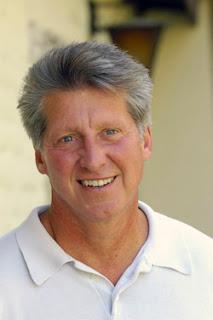After months of increased tension, and weeks of internal debate, the Episcopal Church has cleared its throat and made a statement regarding gay ordinations and marriages:
Episcopal leaders, who are struggling to hold together their increasingly divided church and maintain its place in the global Anglican Communion, pledged anew Tuesday to “exercise restraint” in consecrating another openly gay bishop.
In the final hours of a crucial meeting in New Orleans, Episcopal bishops promised not to authorize official rites for the blessings of same-sex couples and asserted that a majority of bishops do not allow priests to bless such unions.
The statement, which largely affirmed earlier pledges by Episcopal leaders, came at a time when the church, the American branch of Anglicanism, is under intense pressure from conservatives in the worldwide communion to reconsider the U.S. church’s relatively liberal stance on homosexuality and scriptural authority.
The Episcopal Church challenged the prevailing conservative views in the communion in 2003 when it consecrated V. Gene Robinson, a gay man living with his longtime partner, as bishop of New Hampshire.
Anglican leaders had asked the Episcopal Church by Sunday to state unequivocally that it would stop consecrating openly gay bishops and bar official blessings of same-sex unions, or risk playing a diminished role in the communion, the world’s third-largest Christian denomination.
Some theological conservatives immediately rejected the bishops’ response.
“This simply is not what was asked for,” Pittsburgh Bishop Robert Duncan said in a statement. Duncan’s diocese is among several, including Fresno-based San Joaquin, that are taking steps to break with the national church.
But others pointed out that conservative, moderate and liberal bishops had passed the document all but unanimously on a voice vote, with only a single voice heard in dissent.
An official response from the communion may take months.
Archbishop of Canterbury Rowan Williams, the communion’s spiritual leader, attended the first two days of the six-day meeting, urging the bishops to do whatever they could to help hold the 77-million-member global fellowship together.
Before leaving New Orleans, Williams, who has no power to impose a solution, told reporters that he would take time to evaluate the bishops’ statement with other Anglican leaders who attended the meeting. Williams also emphasized that the communion’s directive to the Episcopal Church, with its Sept. 30 deadline, was not an ultimatum to the U.S. church, but would “inevitably [be] a matter of compromise.”
